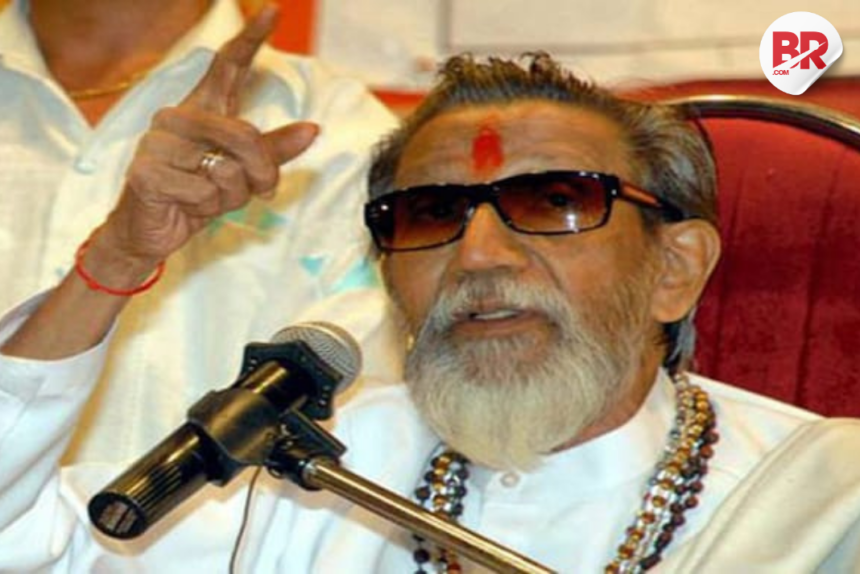Bal Thackeray’s arrest in 2000 might seem like old news, but it still echoes loudly in Maharashtra’s political arena today. This incident, rooted in a bitter feud between Bal Thackeray and Chhagan Bhujbal, has become more than just a past event—it’s a symbol of rivalry, power plays, and shifting alliances in the state.
Let’s unpack why this moment still matters and why the drama from over 25 years ago keeps popping up.
Bal Thackeray, the towering Shiv Sena leader, was arrested in a high-security operation in 2000. The reason? An old case reopened by then Home Minister Chhagan Bhujbal, accusing Thackeray of provocative writing that allegedly stirred trouble.
Although the court later dismissed the case, and Thackeray was discharged, the arrest sent shockwaves. For many, it wasn’t just a legal move—it was a bold political strike.
The Roots of the Feud: When Friends Became Foes
The tension between Bal Thackeray and Chhagan Bhujbal began way back in 1991. Bhujbal, a key figure in the NCP today, was once part of Shiv Sena but rebelled against Thackeray’s decision to appoint Manohar Joshi as Leader of Opposition.
Bhujbal, representing the OBC community, felt sidelined. Adding fuel to the fire, Thackeray’s public criticism of the Mandal Commission—an issue close to Bhujbal’s heart—widened the rift.
Sharad Pawar then stepped in, helping Bhujbal defect to Congress along with around two dozen MLAs. This defection dented Thackeray’s authority and cost Shiv Sena a crucial leadership position. That betrayal left a lasting scar.
Also Read Why Does Bengaluru Flood Every Time It Rains—Even at 3,000 Feet?
From Words to Violence: How the Feud Escalated
Politics in Maharashtra isn’t just about speeches and debates—it sometimes spills over into street-level violence. Thackeray didn’t hold back, calling Bhujbal “Lakhoba” (a Marathi villain) and encouraging Shiv Sainiks to confront him. In 1996, this turned ugly: Shiv Sainiks attacked Bhujbal’s residence and set fire to his office. Bhujbal called it an assassination attempt.
The attackers were arrested, but the hostility didn’t end. Bhujbal held a grudge and later used his position as Home Minister to turn the tables.
When Bhujbal reopened the old case against Bal Thackeray in 2000, many saw it as more than law enforcement—it was personal revenge. The arrest was meticulously planned and highly publicized. Even though the charges were eventually dropped, the arrest left a mark on Maharashtra’s political story.
Ajit Pawar, a powerful leader in Maharashtra, openly said the arrest was Bhujbal’s doing alone, showing how personal this conflict had become.
Years later, Bhujbal and Thackeray reportedly reconciled, with Bhujbal forgiving those who attacked him. But the incident still gets thrown around in political arguments.
Uddhav Thackeray’s faction of Shiv Sena often criticizes Eknath Shinde’s alliance with Bhujbal, reminding everyone of this dark chapter. The Bhujbal arrest of Bal Thackeray remains a political weapon, used to question loyalties and stoke factional fires.
Why This Incident Still Matters Today
The Bal Thackeray arrest story is a reminder that Maharashtra politics runs on personal grudges, shifting alliances, and a healthy dose of drama. It’s proof that old wounds never quite heal—they just lie dormant until the next political crisis stirs them up.
For voters, it shows how power struggles at the top can shape governance and policies at the grassroots. The feud between Thackeray and Bhujbal wasn’t just about personalities—it reflected deeper tensions around caste, leadership, and political loyalty in Maharashtra.
Bal Thackeray’s arrest in 2000 was more than a legal episode—it was a turning point, a battle between two powerful leaders that still colors Maharashtra’s politics today.
Whether you root for Shiv Sena or NCP, this story reveals how politics is personal, messy, and endlessly fascinating in this state.
Also Read Global Anti-Terror Outreach: The 33 Countries India Is Counting On — And Why It Matters




